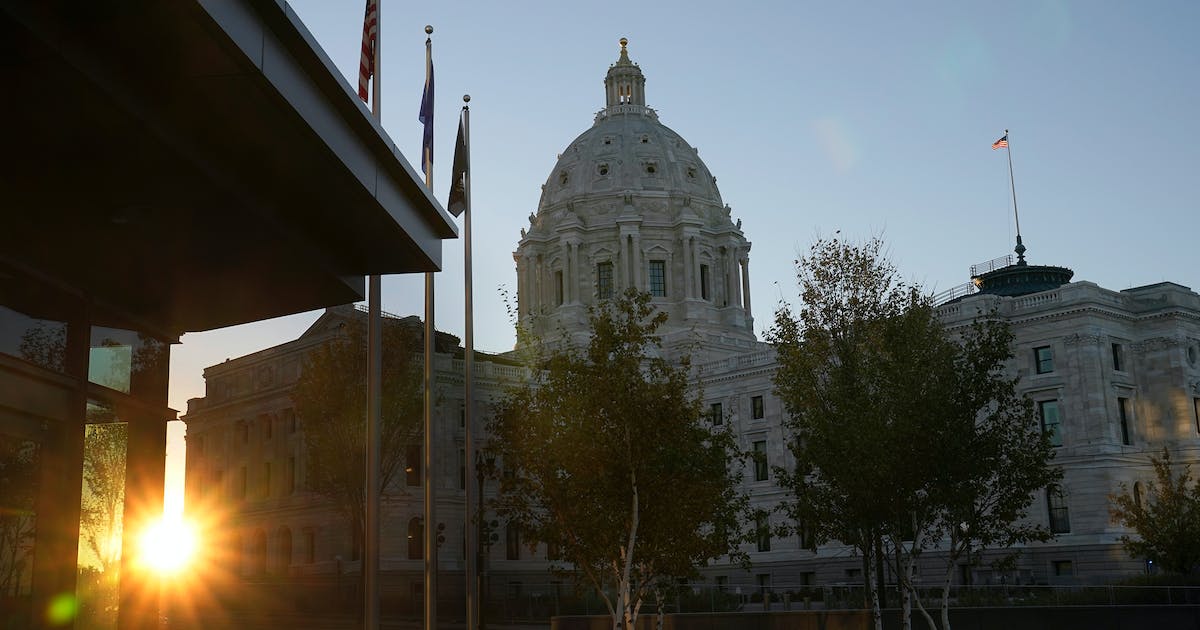
Opinion editor’s note: Editorials represent the opinions of the Star Tribune Editorial Board, which operates independently from the newsroom.
•••
A legislative audit has once again found significant deficiencies in a statewide program. This time it is the Senior Nutrition Program, overseen by the Minnesota Board on Aging.
The report by the Office of the Legislative Auditor found that the aging board “did not have adequate internal controls to ensure compliance with significant legal requirements” for the program and “generally did not comply with significant legal requirements.”
In presenting the report to a legislative committee, Deputy Legislative Auditor Lori Leysen said that the Office of the Legislative Auditor “really took a deep dive, not only on the Board of Aging, but contractors, subcontractors and participants.” The conclusion? “We do have some serious concerns with how the program is administered,” Leysen told the committee.
The report found a lack of meaningful oversight, along with a litany of issues that has become something of a theme in auditor reports on more than a few programs: lack of oversight, lack of site visits, insufficient monitoring of activities and contracts, inadequate verification of rates being charged.
Among the specific findings: The Minnesota Board on Aging, along with the Minnesota Indian Area Agency on Aging, lacked documentation needed to show how service providers calculated meal reimbursement rates. Some service providers lacked valid contracts with subcontractors providing direct services. Neither the aging board nor area agencies operating under it reviewed “any of the contracts” between service providers and subcontractors prior to use.
The report found that the Board on Aging “did not conduct any monitoring activities for the Senior Nutrition Program.” This is almost incomprehensible. Yes, many agencies were flooded with federal COVID funds that overwhelmed their staffs. But no monitoring? None? That fails one of the basic tests of good stewardship of finances.
Among the more disturbing findings: a “substantial number” of program participants surveyed indicated that “contrary to federal program guidance, they were required to pay for program meals.” Providers may request a donation — typically $5 per meal — but cannot make such a charge mandatory. The fact that some seniors may have been charged for what is designed to be a free meal with a voluntary donation is rather appalling and deserves a follow up to prevent such practices in the future.
The auditor’s report notes that “A well-managed organization has strong controls across all of its internal operations.” Regrettably, that does not appear to have been the case here.
In the last legislative session, lawmakers authorized an $11 million, one-time appropriation for senior meals, and the Board on Aging is lobbying for $10 million a year as an ongoing appropriation. In its last call to action, the board called the senior meals programs “severely underfunded,” noting that the appropriation for the Minnesota Senior Nutrition Program had not increased in the past 20 years.
The Senior Nutrition Program, funded jointly by federal and state governments, provided more than 3 million healthy meals to an estimated 40,000 seniors in their homes or group settings last year. It’s designed to reduce hunger, food insecurity and malnutrition while also promoting socialization for seniors who have become isolated. It also offers one more way to get seniors to other health services they may need.
These are important goals, particularly in a state with a substantial aging population that is growing rapidly and where seniors in rural areas especially can suffer from isolation.
In response, state board Executive Director Kari Benson said in a Star Tribune story that the agency generally agreed with the recommendations aimed at better oversight and acknowledged the board had struggled to meet state guidelines. She also noted that in 2022 the agency had difficulty administering “significantly increased funding” due to the pandemic but had made strong progress on the deficiencies raised in the auditor’s report.
The pandemic is over now. We would urge the board to take the auditor’s findings with the utmost seriousness and use whatever means necessary to get the program’s finances and oversight in order.
The need for just this kind of program to feed hungry seniors makes it imperative that the board and related area agencies under it spend these precious funds wisely. Officials must know where dollars are going, and how they are spent. They must be able to fully document expenses and hold valid contracts with all providers and subcontractors. These are minimal requirements, really. To do less is to squander the goodwill that such programs depend upon and perhaps risk losing public support for a valuable program with a worthy and needed goal.
